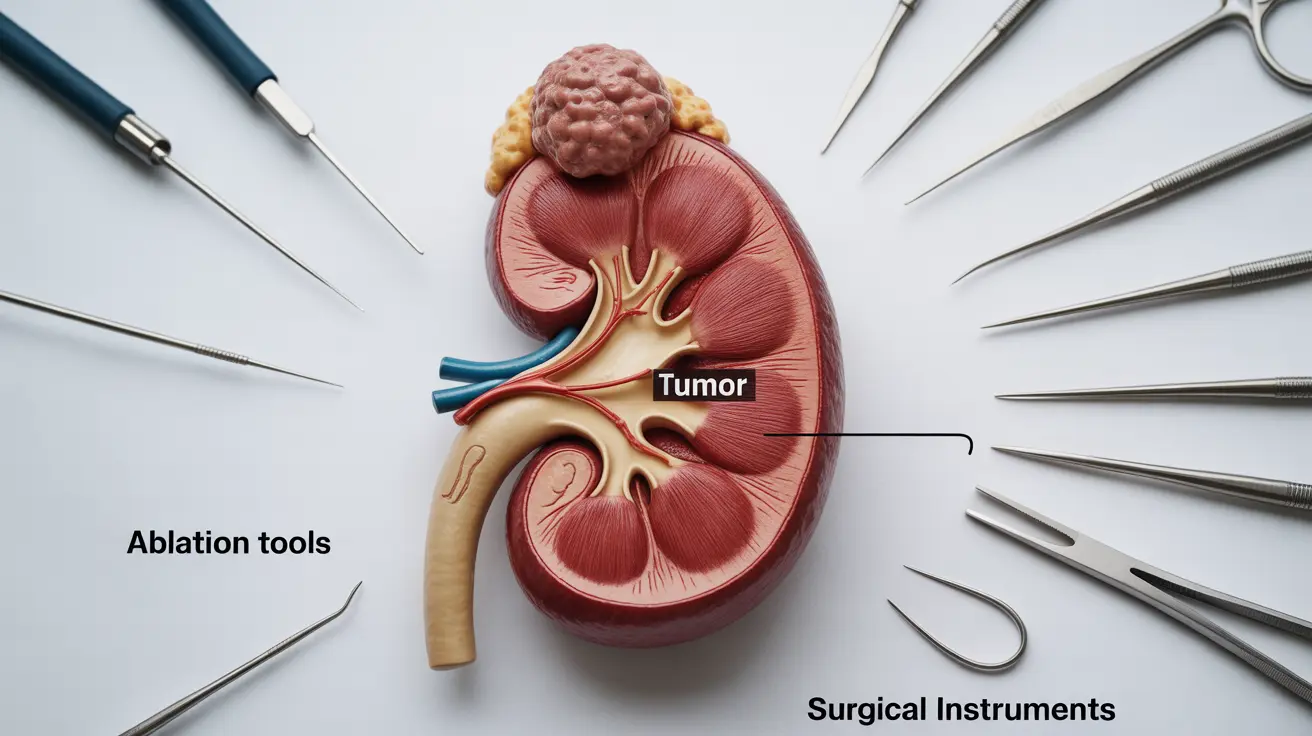When facing kidney cancer, patients and healthcare providers must carefully evaluate treatment options to determine the most appropriate approach. Two primary treatment methods - ablation and surgery - offer different benefits and considerations depending on various factors, including tumor size, location, and the patient's overall health status.
Understanding the key differences between kidney cancer ablation and surgical intervention is crucial for making an informed decision about treatment. This comprehensive guide explores both options to help you better understand their unique characteristics, benefits, and potential drawbacks.
Understanding Kidney Cancer Ablation
Kidney cancer ablation is a minimally invasive procedure that uses extreme temperatures to destroy cancer cells. This technique can be performed using either heat (radiofrequency or microwave ablation) or cold (cryoablation) to target and eliminate tumor tissue.
How Ablation Works
During an ablation procedure, doctors use imaging guidance to precisely insert special needles or probes into the tumor. These instruments either heat the cancer cells to destructive temperatures or freeze them to destroy the cancerous tissue while preserving surrounding healthy tissue.
Surgical Options for Kidney Cancer
Surgery remains the traditional gold standard for treating kidney cancer, particularly for larger tumors. Two main surgical approaches are available: partial nephrectomy and radical nephrectomy.
Types of Kidney Cancer Surgery
Partial nephrectomy involves removing only the tumor and a small margin of healthy tissue, preserving as much kidney function as possible. Radical nephrectomy requires removing the entire affected kidney, and sometimes surrounding tissues if the cancer has spread.
Comparing Treatment Approaches
Factors Influencing Treatment Choice
Several key factors help determine whether ablation or surgery is more appropriate:
- Tumor size and location
- Patient's overall health status
- Kidney function
- Previous treatments
- Patient preferences and lifestyle considerations
Recovery and Rehabilitation
Recovery periods differ significantly between the two approaches. Ablation typically offers a shorter recovery time, with many patients returning to normal activities within days. Surgical recovery can take several weeks to months, depending on the procedure's extent and the patient's overall health.
Long-term Outcomes and Follow-up Care
Both treatment options require ongoing monitoring to ensure cancer has been effectively treated. Regular imaging studies and check-ups help detect any potential recurrence early, allowing for prompt intervention if needed.
Frequently Asked Questions
What are the main differences between kidney cancer ablation and surgery?
The main differences lie in invasiveness and recovery time. Ablation is minimally invasive, using needles or probes to destroy cancer cells, while surgery involves physically removing the tumor or entire kidney. Ablation typically requires shorter hospital stays and recovery periods compared to surgery.
Which treatment option is better for small kidney tumors, ablation or surgery?
For small kidney tumors (generally under 4 cm), both ablation and surgery can be effective. Ablation may be preferred for patients who are older, have other health conditions, or wish to avoid major surgery. However, surgery might be recommended for younger patients or when the tumor location makes ablation challenging.
What are the risks and benefits of kidney cancer ablation compared to surgery?
Ablation offers benefits like shorter recovery time, less pain, and preservation of kidney tissue. However, it may have a slightly higher risk of cancer recurrence. Surgery provides more complete tumor removal but involves longer recovery times and greater risk of complications. The choice depends on individual patient factors.
How long does recovery take after kidney cancer ablation versus surgery?
Recovery after ablation typically takes a few days to a week, with most patients returning to normal activities within days. Surgical recovery can take 4-6 weeks for partial nephrectomy and 6-8 weeks for radical nephrectomy, with gradual return to full activities.
Can kidney cancer ablation be repeated if the tumor comes back?
Yes, kidney cancer ablation can be repeated if necessary. This is one advantage of the procedure, as it can be performed multiple times if cancer recurs. However, the need for repeated treatment may indicate that a different approach, such as surgery, should be considered.




